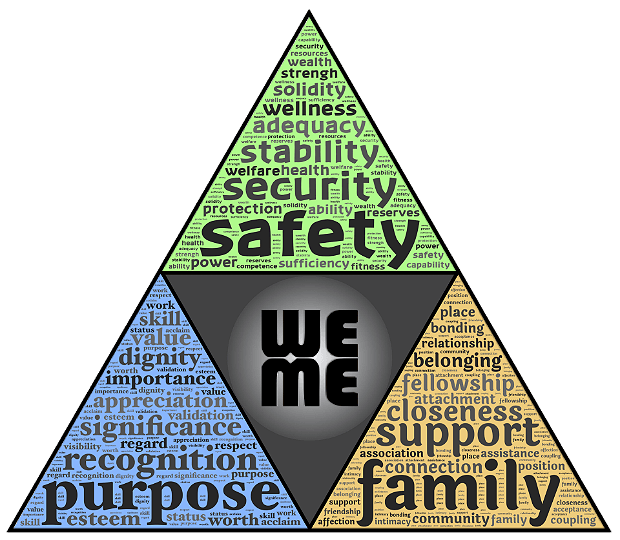
‘I love the job but I can’t stand the macho environment any longer’ one tearful client complained to me recently. Another, newly qualified as a medical consultant, loves the huge scope of his role in public health but is unhappy with his lack of autonomy. A third client, an expert in fund raising doesn’t feel recognised or part of the bigger picture.
These three individuals typify the dissatisfaction we sometimes encounter at CCS, caused by a mismatch between an individual’s values and their work. Yet such individuals have often not given real thought to what matters to them.
When they do reflect on their values, they may well take action. For example the first client left the role she loved and excelled in, because positive social interaction was so lacking. The second client went part-time and found autonomy in other parts of his life and the third moved to a role where she found appreciation.
The point is that these individuals liked and were good at their roles but because their values were deeply out of kilter in their organisations, they were driven to take drastic action.

Why do values matter for organisations?
A survey from Globoforce’s WorkHuman Research Institute found that when employees were asked, ‘What makes you stay at your company?’ the top answer was, ‘My job; I find the work meaningful.’. A sense of meaning was even more important than compensation, which ranked third.
Individuals universally look for autonomy, mastery and psychological relatedness to give purpose and meaning in their work, according to the psychologists, Deci and Ryan.
If the organisations above had taken time to find out what their employees valued, they might not have lost them.
What organisations can do?
So what can organisations do to help employees live out their values?
1. Validation: Of workers who gained appreciation in the last six months, 93% agree their work has meaning and purpose, while only 72% of workers who were not recognised say the same is true, according to the Globoforce study.
So establish a culture of recognition, appreciation and gratitude for good work done. Recognition doesn’t need to be formal but can be from manager to subordinate as well as peer to peer.
2. Connection: It’s critical for leaders to build a culture of camaraderie where individuals genuinely like to work with each other. Most of us value collaboration. We also want to help one another out and build a sense of community. When times are tough, the feelings that employees have towards others on their teams can carry them through and provide motivation to stay at the company.
So instil an open communication policy. Managers are moving from the hierarchical ‘tell’ styles of leadership and are more like coaches and mentors. This involves frequent and ongoing conversations with employees.
3. Continuous learning: In a study done by CCS for a UN agency into what is most important in their career success, learning and development headed the list. To remain sharp employees need to take on new responsibilities and have opportunities to upskill.
So make training and development resources and opportunities continuously available to employees. Everyone should become a lifelong learner to develop and grow new skills and competencies.
4. A greater cause: Every individual needs to feel a sense of ‘I matter,’ and ‘We matter’ – that turning up every day makes a difference. They want to feel proud of the work their organisations do.
So managers need to provide a context for how an individualz’s work fits with the vision, strategy and goals of the organisation. Employees need to be encouraged to see how challenges they are meeting contribute to the overall business.
Written by Gilly Freedman, originally published on the CSS website

